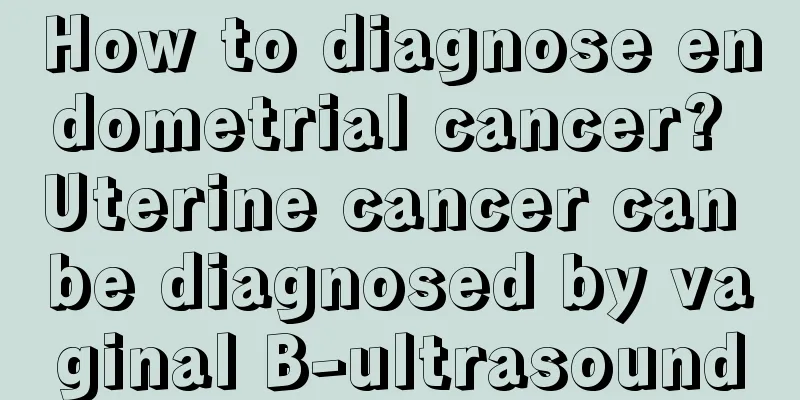Can I still have children if I have endometrial cancer?

|
Endometrial cancer is one of the three most common gynecological malignancies in women. Its incidence rate ranks first among gynecological malignancies in developed countries and second only to cervical cancer in my country. In recent years, the incidence of endometrial cancer has shown a trend of getting younger, with about 10% of patients under the age of 40. As women's childbearing age is gradually pushed back, the incidence of diseases that can affect fertility, such as polycystic ovary syndrome, obesity, and ovarian dysfunction, has increased year by year. Surveys show that up to 70% of endometrial cancer patients of childbearing age are still childless when diagnosed. The treatment of early endometrial cancer is, in principle, a staged surgery including total hysterectomy and bilateral oophorectomy, although the patient's 5-year survival rate after surgery exceeds 93%. But it is difficult for women who have not given birth to accept it. Some patients have a strong desire to retain their fertility. Is it feasible for patients with endometrial cancer to get pregnant? After years of clinical exploration and practice, in 1961, the world reported the first successful application of high-efficiency progestins in the treatment of endometrial cancer to preserve fertility, which brought a ray of hope to endometrial cancer patients who have not conceived during their childbearing years. However, not all endometrial cancer patients who have not conceived during their childbearing years can preserve their fertility. Only those patients who meet the following conditions have the initial feasibility of preserving their fertility. ① Young people ≤ 40 years old who want to preserve their reproductive function; ② Pathologically confirmed stage IA, well-differentiated, type I endometrial adenocarcinoma with positive estrogen and progesterone receptors; ③Ultrasound and MRI examinations exclude myometrial infiltration, lymph node and distant metastasis, and ovarian tumors; ④ Normal serum marker CA125 level (<35IU/ml); ⑤Exclude systemic diseases such as abnormal cardiopulmonary function, acute liver and kidney function damage, and coagulation dysfunction ⑥ Exclude patients with a family history of hereditary non-polyposis colorectal cancer, a history of other tumors, or combined tumors in other parts of the body; ⑦ Follow-up can be guaranteed. Patients who do not meet the above conditions should follow the doctor's advice and be treated according to the treatment principles of endometrial cancer. |
<<: Which hospital should I go to for endometrial cancer
>>: What to do if a patient with endometrial cancer becomes pregnant
Recommend
What kind of disease hidden behind sudden weight loss
Recently, Cecilia Cheung was in pain because of t...
Those delicacies that were created due to the producer's mistakes
Most classic dishes are created by chefs after ma...
What are the methods of using tampons
Tampons are one of the essential items for female...
What is the reason for dry and painful nostrils
Everyone should know the function of the nostrils...
What is the cause of anal lesions
Nowadays, the incidence of anal diseases is relat...
What should I do if I have osteosarcoma
Osteosarcoma is a serious malignant tumor of the ...
What to do if there are cellulite on the legs
The appearance of cellulite on the thighs can giv...
Where can I get good treatment for ovarian tumors
As a patient, the level of hospital experts is on...
What are the common symptoms of skin cancer?
Nowadays, people's pace of life and work are ...
What's wrong with my stomach ache
We often experience stomach pain in our daily liv...
What should liver cancer patients eat in general? Dietary precautions for preventing liver cancer
What should liver cancer patients eat? Coffee con...
Do you know what organic food means?
With the development of dietary diversification, ...
5 tips to relieve foot bone hyperplasia
For people who often need to stand at work or run...
What to do when wisdom teeth hurt
The problem of wisdom tooth pain can be said to b...
Can color blindness be cured? Treatment for color blindness
Color blindness is quite common in life. Many peo...









